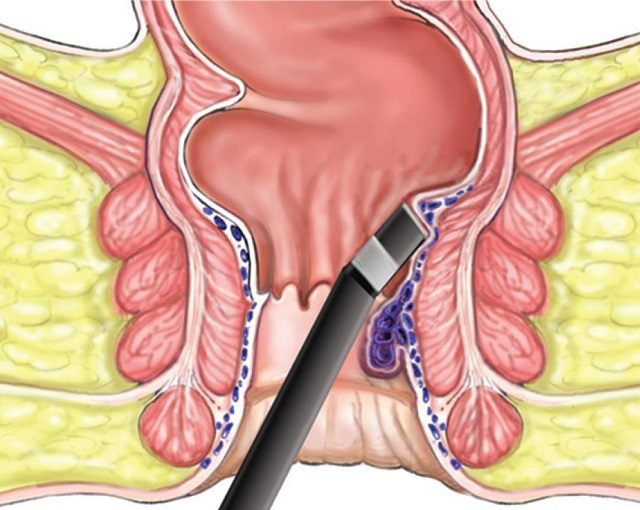Home
» Services » Infrared Coagulation Treatment for Hemorrhoids
What Is Infrared Coagulation Treatment (IRC)?
Infrared Coagulation Treatment, also known as IRC, is a common procedure used to treat internal hemorrhoids. Hemorrhoids are swollen blood vessels in the rectal area that can cause a variety of symptoms such as itching, discomfort, and bleeding. IRC is an effective treatment option for hemorrhoids as it works by reducing the blood supply to the hemorrhoids, which causes them to shrink and eventually disappear.
How Do You Prepare For Infrared Coagulation Treatment for Hemorrhoids?
Preparing for an Infrared Coagulation Treatment for hemorrhoids is relatively straightforward and requires minimal preparation. The main goal of the preparation is to clean the rectal area before the procedure to ensure that the area is as clean as possible and to reduce the risk of infection.
One of the ways to prepare for the procedure is by using enemas, such as Fleet or squeeze bottle enemas. These enemas work by introducing a small amount of liquid into the rectum, which helps to flush out any fecal matter and debris. Patients are typically instructed to take two enemas, one hour apart, at home before their appointment.
Another important aspect of preparation is fasting. Patients should not eat or drink anything after midnight the night before their procedure. This is to ensure that the stomach and intestines are empty during the procedure, which makes it easier for the doctor to access the hemorrhoids and reduce the risk of complications.
It’s important to keep in mind that you should not hesitate to ask your physician about any questions or concerns you might have about preparing for the procedure.
Why is Hemorrhoid Treatment performed?
One of the main reasons why IRC is performed is to reduce the size of swollen hemorrhoids. When hemorrhoids become swollen, they can cause a lot of pain and discomfort, making it difficult for patients to go about their daily activities. By shrinking the hemorrhoids, IRC can greatly reduce the pain and discomfort associated with the condition.
Another reason why IRC is performed is to control bleeding caused by hemorrhoids. Hemorrhoids can be a source of bleeding, which can be both uncomfortable and alarming. IRC works by reducing the blood supply to the hemorrhoids, which stops the bleeding. This can be especially helpful for patients who experience recurrent or heavy bleeding.
What Can You Expect During An Infrared Coagulation Treatment for Hemorrhoids?

During an Infrared Coagulation (IRC) treatment, the patient will lie on their back with their knees bent and feet flat on the examination table. The doctor will then use a light probe, which emits infrared energy, to target the internal hemorrhoid. The heat from the probe will cause the blood vessels supplying the hemorrhoid to coagulate, which will shrink the hemorrhoid. The procedure is typically performed on an outpatient basis.
Patients can expect minimal symptoms and discomfort during and after the procedure, as the procedure is done under a short-duration anesthesia. After the procedure, patients can resume normal activities almost immediately and are usually able to return to work the next day. The patient may experience some mild discomfort and minor bleeding for a few days but it is usually minimal.
What Is The Followup For Hemorrhoid Treatment?
The follow-up for Infrared Coagulation Treatment is important in ensuring the success of the procedure and preventing recurrence of hemorrhoids. During the follow-up, the healthcare provider will evaluate the patient’s progress and check for any complications or side effects. Typically, patients will have three procedures performed 4 to 6 weeks apart, and a fourth procedure six months later. This is done to ensure that the hemorrhoids are effectively treated and the risk of recurrence is minimized. Along with these follow-up procedures, it is also recommended that patients maintain a high-fiber diet to prevent constipation and straining during bowel movements, which can contribute to the development of hemorrhoids. This may include increasing intake of fruits, vegetables, and whole grains, as well as drinking plenty of water to stay hydrated. In addition, patients will be advised to avoid sitting or standing for prolonged periods of time and to maintain good hygiene practices to keep the area clean.
What Are The Potential Risks Of Infrared Coagulation Treatment For Hemorrhoids?
The potential risks of Infrared Coagulation Treatment for hemorrhoids include minor bleeding and pain after the procedure. These symptoms can usually be treated with over-the-counter pain medication and should subside within a few days. Additionally, there is a small risk of infection, although this is very rare. In some cases, the hemorrhoid may not fully shrink or may reoccur. However, this is not a common complication of the procedure. It is important to note that patients may experience some discomfort and mild pain during the procedure, but the use of short-duration anesthesia should minimize this. Overall, Infrared Coagulation Treatment for hemorrhoids is considered a safe and effective procedure with a low risk of complications.
Are There Related Treatments Or Diagnostics To This Kind of Hemorrhoid Treatment?
Other related treatments for hemorrhoids include rubber band ligation, in which a small rubber band is placed around the base of the hemorrhoid to cut off its blood supply, causing it to shrink and eventually fall off. Surgical excision is another option, in which the hemorrhoid is surgically removed. Both of these alternative treatments have similar effectiveness to Infrared Coagulation Treatment but may carry a higher risk of complications such as bleeding, infection, and pain. Additionally, some diagnostic tests may be performed before treatment such as anoscopy, colonoscopy or sigmoidoscopy to confirm the diagnosis of hemorrhoids.



